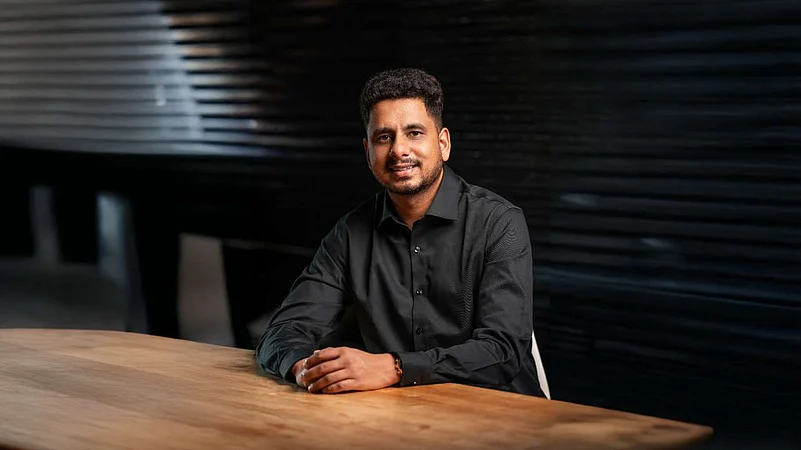The conventional wisdom says learning French for Canadian immigration takes years. Ishan Malhi's students have been completing their language requirements in just 4–5 months, while many traditional learners take years to achieve similar results.
This founded Learn Le Français, a language school in Canada that has supported thousands of students in learning French efficiently.
From Struggle to Mastery: Ishan’s Personal Journey
Ishan Malhi’s story begins not as a teacher, but as a student in Quebec, Canada. Arriving in Canada in 2014, he moved to Montreal in 2015 to pursue academic opportunities. In November 2016, he had completed his studies and applied for permanent residency under Quebec’s skilled worker program.
But in February 2017, a revision to Quebec’s immigration point system rendered his application ineligible, a policy shift that left thousands scrambling for alternatives. With his work permit set to expire in November 2017, Malhi had one path forward: master French and pass the TEFAQ exam, a gateway to Quebec residency that required language proficiency.
Traditional language schools warned him it would take 1–2 years to prepare. Malhi turned to an unconventional mentor, a polyglot tutor from France studying at Concordia University. This tutor’s method focuses on cognitive challenge, combining accelerated grammar learning with consistent pronunciation practice and sentence construction. Within six weeks, Malhi became familiar with the exam’s grammatical framework. After preparing for and passing the TEFAQ exam, a variant of the TEF, he developed a system that has since been used by many learners.
From Student to Educator: Building a New Model
The COVID-19 lockdown played a role in Malhi’s transition from language learner to teacher. Encouraged by friends, he began sharing his French fluency with Montreal’s South Asian community. His early students, many preparing for immigration requirements, made steady progress and were often able to clear the TEFAQ or TEF Canada exams within five months. By 2022, what started as informal tutoring had evolved into Learn Le Français, a language school that had served over 15,000 students.
Malhi’s method, refined from his own experience, prioritizes immediacy. Unlike traditional programs that delay practical skills for months, his students begin working on all four exam modules—listening, speaking, reading, and writing—by their second month. Grammar and pronunciation are taught simultaneously, with ongoing post-class support: students submit voice notes, writing samples, and recordings for real-time feedback.
"While many institutions rely on outdated, theory-heavy methods that delay student progress, we’ve adopted a modern, research-backed method that’s practical, focused, and results-driven," Malhi says.
The Science Behind Accelerated Learning
Central to Malhi’s success is the spacing effect, a cognitive principle where learning is reinforced through staggered intervals of study and practice. Live sessions are supplemented with guided self-study, and tutors remain accessible outside classroom hours.
Instructors are handpicked for expertise: all hold C2-level certifications (the highest recognized proficiency), with many boasting advanced degrees in French literature or top TEF/TCF scores. “Strong foundations begin with the right teacher,” Malhi emphasizes. This commitment to quality has made his school a preferred choice within the South Asian community, with expansion plans aligned with India’s growing demand for Canadian immigration preparation.
Building a Community of Success
The results reflect progress beyond typical timelines. In 2024, student Sonal advanced from beginner to CLB-8 in listening and speaking, and CLB-7 in reading and writing within 4.5 months, increasing her Express Entry profile by 62 points. Such stories are common at Learn Le Français, where students often achieve NCLC 7 (the threshold for immigration) in half the time traditional programs require. Malhi’s system has even influenced competitors, with institutions adopting his blended model of live instruction and continuous tutor engagement.
Learn Le Français has become a recognized French language school among the South Asian community in Canada, leveraging platforms like Instagram, TikTok, and YouTube to reach students where they spend their time. This digital-first strategy generates the majority of their revenue while building an engaged community of learners who support each other through the challenging immigration process.
The school’s expansion plans include targeting the Indian market, recognizing the growing demand for Canadian immigration preparation among international students. Malhi’s vision extends beyond individual student success to systemic change within French language education. His methods are being noticed and adopted by other institutions, validating the effectiveness of his science-based teaching model.
Ishan’s students go beyond vocabulary memorization and grammar exercises by practicing with real-world French tasks that align with the TEF Canada examination format. This targeted preparation means students spend their study time on skills that directly impact their test performance and immigration prospects.
Accelerating French Mastery with a Practical Approach
The traditional language learning industry treats French as an academic subject to be mastered over years. Malhi treats it as a practical tool that students need to acquire quickly for specific goals. This fundamental difference in perspective has created a new standard for language education that prioritizes outcomes over process, speed over tradition, and student success over institutional convenience.
The progress of students like Sonal—from beginner to exam readiness in a short period—illustrates how structured teaching methods, combined with consistent effort, can support faster language learning. Malhi’s Learn Le Français proves meeting French language requirements for Canadian immigration can be made more efficient with the right guidance, methods, and support system.














